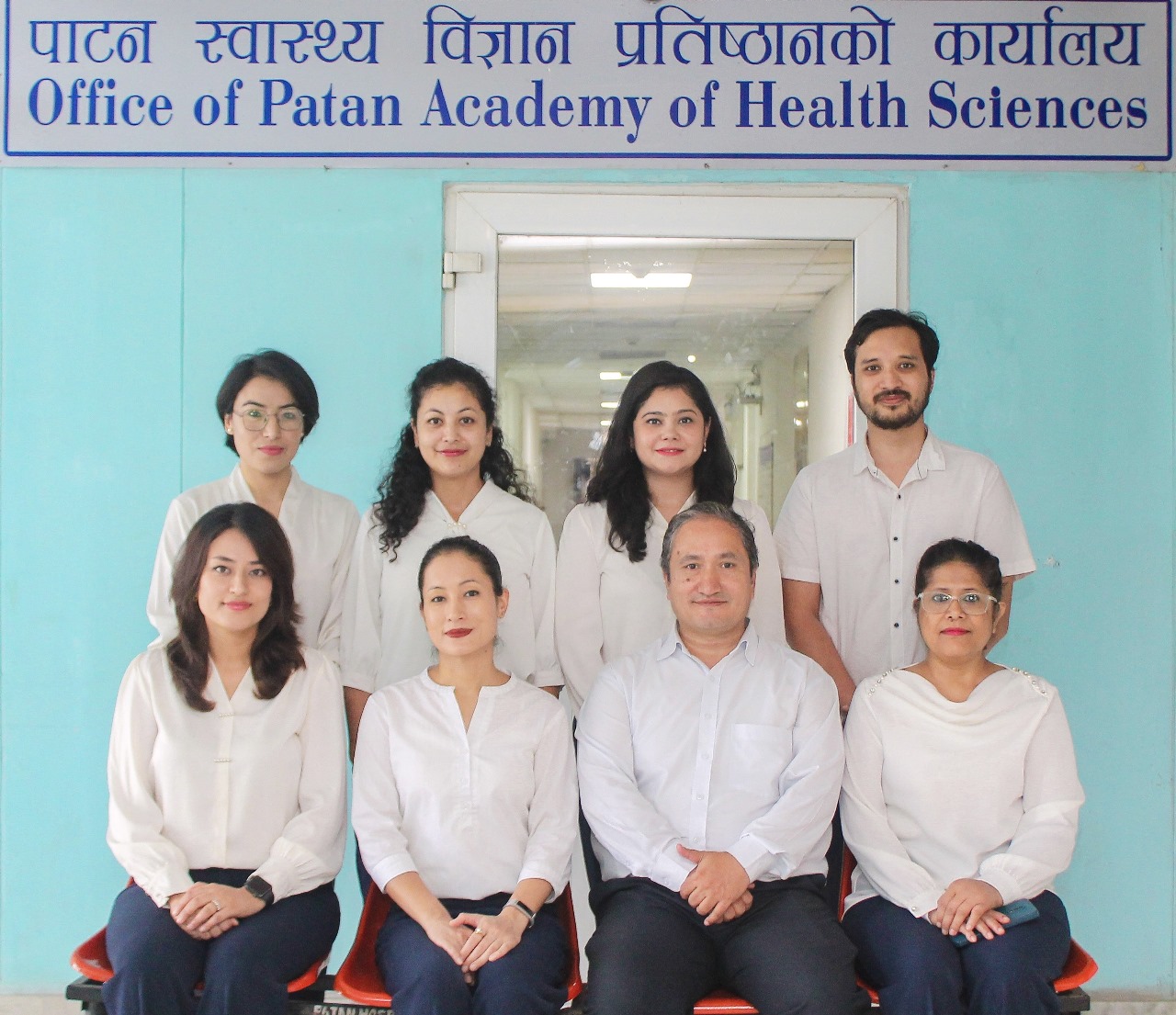Department of Pathology and Laboratory Medicine
The Department of Pathology and Laboratory Medicine at Patan Academy of Health Sciences has been an integral part of the hospital since its establishment. It integrates the departments of pathology, biochemistry, microbiology, and blood bank under one umbrella. The department is a resource for clinical laboratory services required for innovative patient care, research, and educational programs.
Departmental Services
In-patient Services
The Pathology department supports the hospital with comprehensive diagnostic services for in-patient care. It includes facilities for routine hematology, biochemistry, microbiology, histo/cytopathology, and blood bank services. Additionally, advanced services such as flow-cytometry, molecular pathology (including Immunohistochemistry and Polymerase Chain Reaction), and indirect immunofluorescence assay are provided.
Out-patient Services
Outpatient services are available 5 days a week. The number of patients utilizing these services has been increasing every year. The department offers diagnostic consultations and follow-up services for various pathological conditions.

Emergency Services
The Pathology department provides 24-hour emergency diagnostic services to support the hospital’s emergency care needs.
Diagnostic Services
The department conducts a wide range of diagnostic procedures, including:
• Hematology
• Biochemistry
• Microbiology
• Histopathology
• Cytopathology
• Blood Bank Services
• Flow-cytometry
• Molecular Pathology (Immunohistochemistry, PCR)
• Indirect Immunofluorescence Assay
Our laboratory is well-equipped with advanced diagnostic tools and technologies to ensure accurate and timely results.
Patient Care
This is one of the largest departments in the hospital with a total of 73 staff who deliver routine and 24-hour emergency services throughout the year.
The blood bank at our hospital conducts routine blood donation programs and with the refrigerated centrifuge, various blood products are promptly available for transfusion. With the presence of an apheresis machine, single donor platelet (SDP) has now become a reality. The blood bank has provision for the storage of different blood components including whole blood, packed red cells, platelet-rich plasma, platelet concentrate, and fresh frozen plasma.
The department conducts regular interactive sessions with clinical departments to discuss interesting cases and build an integrated team for a timely and proper diagnosis for suitable patient care.
Academic Activities
UG Program
Department actively involves in the teaching-learning activities of undergraduate program during pre-clinical and clinical years.
PG Program
All trainees/residents are actively involved in academic activities, including case presentations, seminars, and journal presentations. The academic roster is updated yearly and usually released one month prior to ensure adequate preparation time for trainees. The topics cover a wide range of the syllabus, focusing on both basic and high-yield content required for postgraduate training.
The postgraduate residency program is a competency-based program trained and evaluated across PAHS’s eight core competencies.
Assessment Tools Used
•Core Content Review
•Case-Based Discussion
•DOPS (Direct Observation of Procedural Skills)
•Mini-CEX (Mini Clinical Evaluation Exercise)
•EPAs (Entrustable Professional Activities)
•Fieldnotes
The 21st century is the era of technological advancements. With these advanced technologies and the emergence of molecular pathology, diagnostic as well as therapeutic approaches are also changing at a rapid pace. To stay abreast with these advancements, the Department of Pathology has conducted several workshops with an aim to update seasoned as well as novice pathologists on recent advances.
[ninja_tables id=”669″]